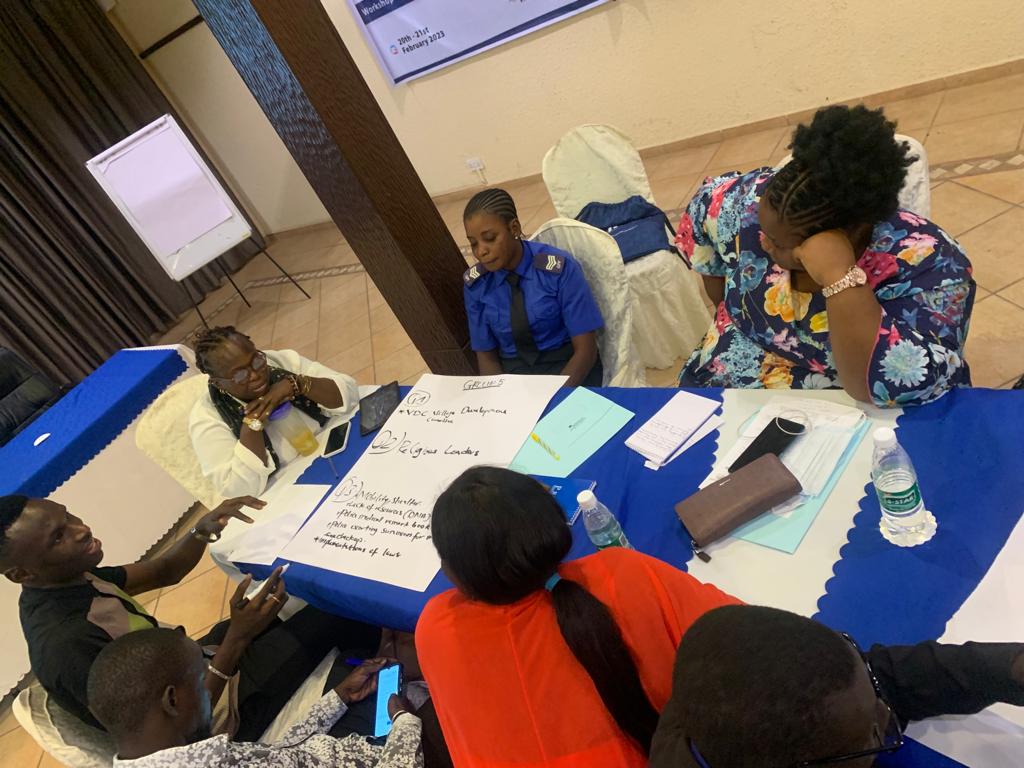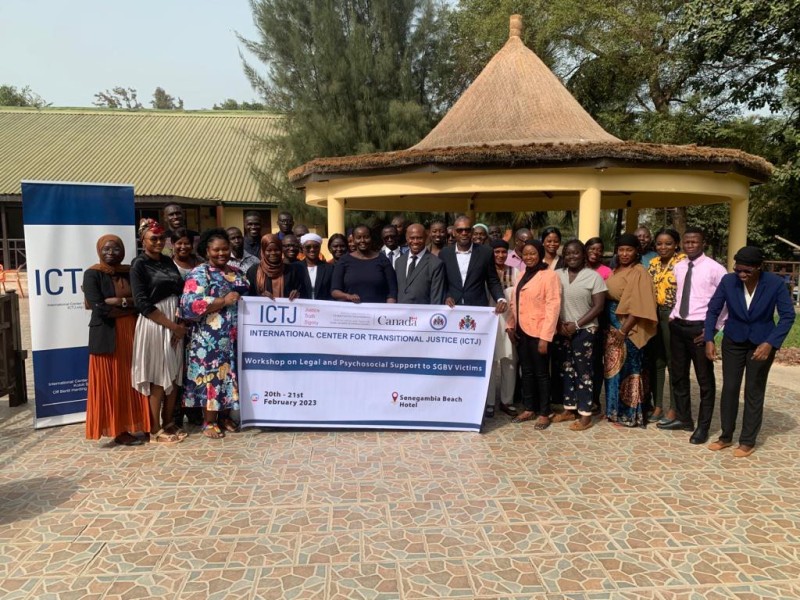“Despite laws already in place, the number of sexual and gender-based violence [SGBV] cases is still rising, including cases of rape, female genital mutilation, sexual assault, and harassment. This means there is the need for enforcement of such laws,” asserted Didier Gbery, ICTJ’s head of program for The Gambia, at the opening of a workshop this past March on increasing SGBV victims’ access to justice. Participants included civil society representatives, police officers, prosecutors, and state actors. The workshop was one of two that ICTJ organized in early 2023 to strengthen the capacity of stakeholders in The Gambia to defend SGBV victims and provide them with vital gender-sensitive support.
Since 2019, ICTJ has supported victims of sexual and gender-based crimes committed both during the Yahya Jammeh dictatorship and more recently, accompanying them on their quest for justice, acknowledgment, and repair. Due to traditional culture and beliefs, however, SGBV can be a difficult violation to address. ICTJ has thus undertaken activities to explore the various factors affecting SGBV victims and impeding their access to justice and develop actionable solutions.
In 2022 and early 2023, ICTJ conducted a study mapping the services available to SGBV victims in The Gambia. It found that civil society organizations (CSOs) that work closely with victims often struggle to advance their rights and link them to support services. The study also pointed to some gaps in government policy and corresponding mechanisms related to protocols that would ensure victims are safe and receive psychosocial support as they navigate the justice and other systems. State actors, however, are hard-pressed to put in place such protocols, and perhaps they are not ideally situated to do so. Therefore, the assistance that CSOs provide is all-the-more crucial, as it can have a decisive impact on victims, their well-being, and their search for justice.

All stakeholders must nonetheless understand the challenges each faces and come together to find solutions to mitigate them. In this spirit, ICTJ convened civil society representatives, police officers, members of the judiciary, and other government officials for two two-daylong workshops in February and March to help them better coordinate their activities and serve SGBV victims more effectively. The workshops also provided essential information and training to civil society representatives on relevant legal and justice-related processes, while raising awareness among state actors about the needs of SGBV victims, the vital role CSOs play, and the obstacles they encounter.
Ensuring victims are safe is a critical piece of the puzzle. At the workshop in February, Dr. Babanding Daffeh, a gynecologist and forensic expert on SGBV crimes in The Gambia, pointed out that many flaws in both the investigation and litigation of SGBV cases stem from a failure to “protect victims, especially those that had the courage to come forward and report their cases.” Stakeholders must therefore conduct appropriate risk and vulnerability assessments of victims and witnesses at the very outset to prevent any harm or re-traumatization.
“Victims and witnesses of SGBV need both support and protection, including logistical, security, and psychosocial support,” explained Sara Kasande, ICTJ’s head of office in Uganda, in a presentation at the February workshop on gender-sensitive investigative strategies. “In most cases, the state is more concerned with prosecuting than taking care of the victim, so other stakeholders like CSOs are best positioned to take on these responsibilities and help victims recover.”
When CSOs and state actors share information and coordinate, they can achieve justice for SGBV victims. CSOs are well positioned to provide psychosocial and other support to victims and witnesses during a judicial process. They can also support prosecutors by helping identifying criminal patterns. More broadly, by working together, CSOs and state actors can raise awareness about SGBV and help dispel traditional stigmas associated with it in many communities, establish clear channels for victims to report these crimes, and ensure the laws in place to combat SGBV are applied to deliver justice to victims and prevent these crimes from happening again.
____________
PHOTO: Participants gather for a group picture at an ICTJ-organized workshop on legal and psychosocial support for SGBV victims in The Gambia in February 2023. (ICTJ)
